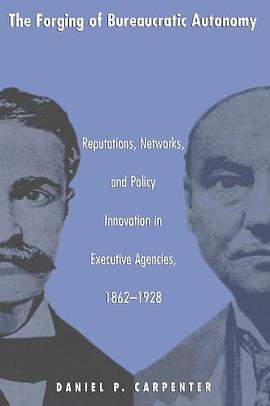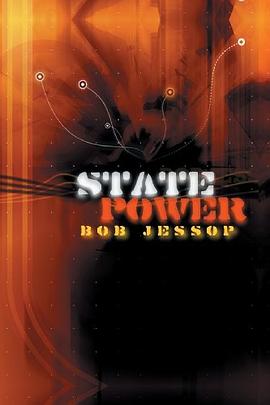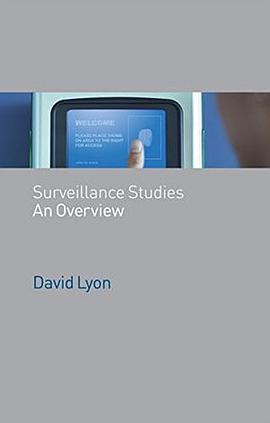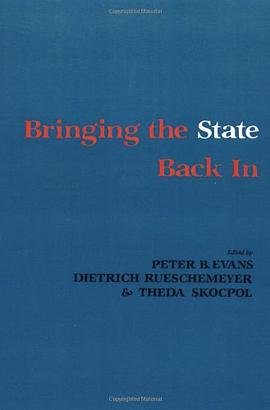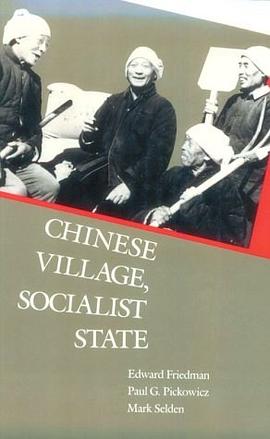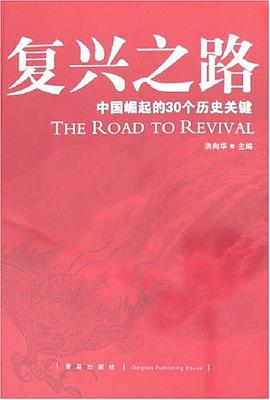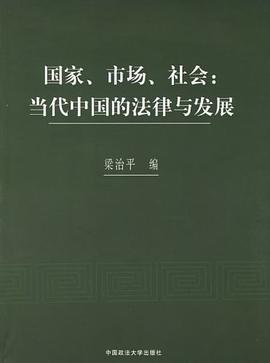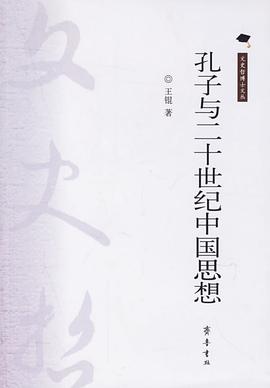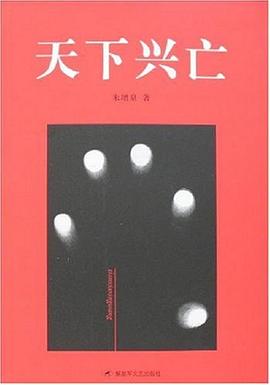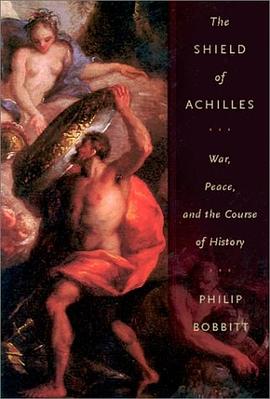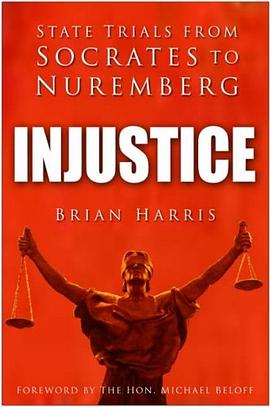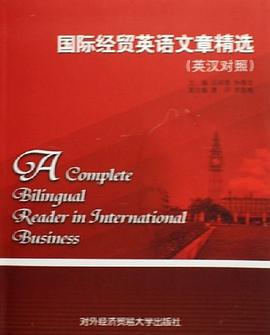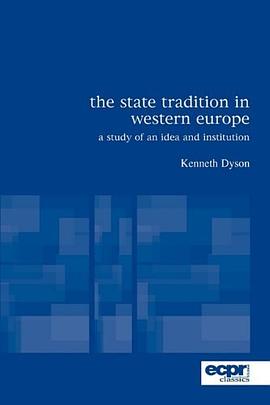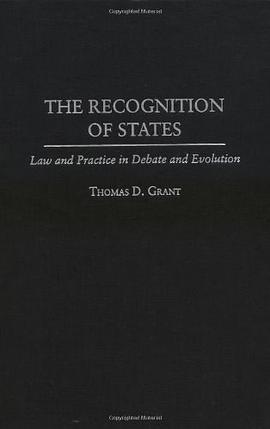

具体描述
This work examines the long debate over state recognition, tracing its eclipse, and identifying trends in contemporary international law that may explain the lingering persistence of the terms of that debate. Although writers have generally accepted the declaratory view as more accurate than its old rival, the judicial sources often cited to support the declaratory view do not on scrutiny do so as decisively as commonly assumed. Contemporary doctrinal preference requires explanation. Declaratory doctrine, in its apparent diminution of the role state discretion plays in recognition, is in harmony, the author asserts, with contemporary aspirations for international law. It may seem to many writers, he believes, that international governance functions better in a conceptual framework that reduces the power of states to legislate what entities are states. The author proceeds from this analysis of the contemporary status of the old debate to ask what questions now take centre stage. In place of doctrine, he argues, process is the chief issue concerning recognition today. Whether to recognize unilaterally or in a collective framework; whether to acknowledge legal rules or to let recognition be controlled by political calculus - the author asserts that such questions concern how states recognize, not the theoretical nature of recognition.
作者简介
目录信息
读后感
评分
评分
评分
评分
用户评价
我一直对那些能够连接历史、政治与法律的学科交叉性主题情有独钟,《The Recognition of States》正是这样一本引人入胜的书籍。在阅读它之前,我对国家承认的理解,主要停留在一个相对静态和法律化的层面,认为它主要是一种对符合特定法律标准的实体进行的确认。然而,这本书以其宏大的视角和深入的案例分析,彻底颠覆了我的这种看法,让我深刻认识到国家承认的复杂性、动态性以及其在国际关系中扮演的至关重要的角色。 本书最为吸引我之处,在于其对历史作为国家承认判断核心驱动力的深刻洞察。作者并没有将国家承认仅仅视为一系列冷冰冰的法律规则的套用,而是通过追溯从19世纪欧洲国家体系的形成,到20世纪初民族自决权的兴起,再到后殖民时代一批新兴国家如何在国际舞台上争取承认的曲折过程,《The Recognition of States》生动地展现了历史进程对国家承认决策的塑造作用。它揭示了,在许多关键的历史时刻,政治意愿、地缘战略以及新兴的国际规范,往往比纯粹的法律考量更能决定一个国家是否能够获得广泛的承认。 《The Recognition of States》对构成国家法律要素的讨论,同样非常详实和到位。作者深入阐述了“有效政府”、“固定领土”、“稳定人口”以及“与其他国家建立关系的能力”这些被广泛接受的国家承认标准,并结合了大量历史和当代案例,探讨了这些标准在实践中的灵活性和复杂性。尤其是在处理一些边界模糊、国内冲突激烈或政府控制力有限的实体时,国际社会在应用这些标准时所面临的挑战,以及由此产生的不同承认模式,都得到了精彩的呈现。 令我印象深刻的是,书中对国家承认中的“政治性”与“法律性”之间持续存在的张力进行了细致的剖析。作者并未回避这样一个普遍存在的现象:在许多情况下,一个实体是否能够获得承认,很大程度上取决于那些拥有承认权的国家是否出于政治、经济或安全等方面的考量而愿意这样做。书中对一些例如承认新政府的案例进行了详细分析,揭示了政治考量如何在法律标准之上发挥着决定性作用。这种对理论与实践之间差异的深刻洞察,使得本书的论述既有学术的严谨性,又充满现实的指导意义。 《The Recognition of States》还对国家承认的“后果”进行了深入的探讨,这一点对我来说尤为重要。作者详细阐述了被承认后,一个国家在国际法上所能享有的权利和承担的义务,包括与其他国家建立外交关系、缔结条约、以及参与国际组织等。同时,对于未被承认的实体,其在国际交往中所面临的种种障碍和限制,也得到了清晰的描绘。这让我更加清晰地认识到,国家承认对于一个实体在国际体系中的生存和发展具有何等关键的作用。 此外,本书对国家承认与国家主权、民族自决权、人权保障以及干涉内政等重要概念之间的复杂关系,也进行了深入的分析。通过对一些例如巴尔干地区国家分裂、加泰罗尼亚独立运动等案例的探讨,作者揭示了在这些复杂情境下,国家承认的决策如何与这些核心概念相互作用、相互影响。这使得我对国家承认的理解,不再仅仅局限于其本身,而是将其置于更广阔的国际法和国际政治的宏大背景之下。 《The Recognition of States》在处理一些具有高度争议性的国际问题时,展现了令人赞叹的客观性和平衡性。例如,在讨论如科索沃独立、巴勒斯坦地位等敏感议题时,作者细致地梳理了各方立场、历史背景以及国际法上的相关原则,避免了简单化的判断或价值评判。这种对复杂现实的审慎处理,使得本书的论述更具深度和启发性,也更容易让读者接受。 从读者的角度来看,这本书不仅仅是一本学术著作,更是一部能够拓展视野、激发思考的精彩读物。作者的叙述风格流畅,逻辑严密,使得即使是对于国际法不甚了解的读者,也能从中获得深刻的洞见。它所提供的丰富案例和深刻分析,能够极大地拓宽读者的视野,并引发对现代国际体系如何形成和运作的深入思考。 总而言之,《The Recognition of States》是一部关于国家承认这一复杂而核心的国际法议题的集大成之作。它以其深厚的历史积淀、精辟的理论分析和对现实问题的敏锐洞察,为我们提供了一个全面而深刻的理解框架。对于任何希望深入了解现代国际体系如何形成和运作的读者来说,这本书都是一本不可或缺的参考。
评分作为一名对国际法和国家形成过程抱有强烈好奇心的普通读者,《The Recognition of States》的问世,无异于为我打开了一扇通往更深邃理解的大门。在这本书问世之前,我对国家承认的理解,大多停留在教科书式的定义,即一个政治实体是否被其他国家视为主权国家。然而,这本书以其磅礴的史料考证和细致入微的逻辑分析,将国家承认这个概念的复杂性、多面性以及其在国际关系中的核心地位,展现得淋漓尽致。 本书最令我震撼的一点,是它对历史进程与国家承认之间关系的深度挖掘。作者并没有将国家承认仅仅视为一个静态的法律判断,而是将其置于不断演变的国际政治历史长河中进行考察。从19世纪欧洲民族国家的兴起,到20世纪两次世界大战后的国家格局重塑,再到冷战时期东西方阵营对新兴国家承认的策略性运用,乃至当代后殖民时代民族自决权的兴起所带来的挑战,《The Recognition of States》都通过详实的案例分析,揭示了国家承认如何受到历史潮流、政治力量以及国际社会共识的影响而不断演变。它让我明白,国家承认从来都不是一个孤立存在的概念,而是与更宏大的历史叙事紧密相连。 特别值得称道的是,书中对于国家承认中的“政治性”与“法律性”之间张力的描绘。作者并未回避这样一个核心难题:国家承认究竟是应该更多地取决于严格的法律标准,还是更容易受到政治考量的影响?《The Recognition of States》通过对一系列具有代表性的案例进行深入剖析,如承认新政府、承认分裂国家等,清晰地展现了政治因素在国家承认决策中的强大驱动力。它细致地分析了在许多情况下,即使一个实体已经满足了国际法上成为国家的要素,但由于政治上的不确定性或反对,其承认过程仍然会异常艰难。这种对理论与实践之间微妙关系的深刻洞察,使得本书的论述极具说服力。 《The Recognition of States》在对构成国家的法律要素进行阐述时,也显得尤为严谨。作者详细介绍了“有效政府”、“固定领土”、“稳定人口”以及“与其他国家建立关系的能力”等被普遍接受的国家承认标准,并结合大量历史案例,探讨了这些标准在实践中是如何被解释、应用甚至有时是被规避的。例如,在处理一些存在边界争议、政府控制力薄弱或者人口流动性大的新兴实体时,国际社会在判断是否满足这些标准时,往往会面临巨大的挑战。本书对这些复杂情况的分析,为我们理解国家承认的实际操作提供了宝贵的视角。 这本书还对国家承认的不同形式进行了详尽的梳理和比较,包括明确承认(express recognition)、默示承认(implied recognition)、以及对政府的承认(recognition of government)与对国家的承认(recognition of state)。作者通过对这些不同承认形式的法律后果进行细致的分析,让我更加清晰地理解了它们在国际法上的区别和意义。例如,承认一个新国家通常意味着承认其完全的国际人格,而仅仅承认一个新政府,则可能仅仅是对现有国家政权的合法性的一种认可,并不必然改变国家的国际地位。 《The Recognition of States》对国家承认在维护国际和平与安全方面的作用的论述,也让我耳目一新。作者通过分析一些历史案例,指出及时和恰当的国家承认,能够为新生的国家提供稳定和合法性,促进其融入国际社会,从而有助于地区和国际的和平。相反,模糊不清的承认态度或长期的不承认,则可能加剧地区紧张局势,甚至为潜在的冲突埋下隐患。这种从更宏观的国家利益和国际安全视角来审视国家承认的意义,极大地丰富了我对此议题的理解。 令我印象深刻的还有书中对一些争议性问题的处理方式。作者在讨论如科索沃独立、巴勒斯坦地位等敏感议题时,展现了极高的学术严谨性和客观性。它细致地梳理了各方立场、历史背景以及国际法上的相关原则,避免了简单化的判断或价值评判。这种对复杂现实的审慎处理,使得本书的论述更具深度和启发性。 《The Recognition of States》不仅是一本严谨的学术著作,更是一本引人入胜的历史读物。作者的叙述清晰流畅,逻辑严密,即使是对于国际法不甚了解的读者,也能从中获得深刻的洞见。它所提供的丰富案例和深刻分析,能够极大地拓宽读者的视野,并激发对国际关系和国家主权等根本性问题的思考。 总而言之,《The Recognition of States》是一部关于国家承认这一复杂而核心的国际法议题的集大成之作。它以其深厚的历史积淀、精辟的理论分析和对现实问题的敏锐洞察,为我们提供了一个全面而深刻的理解框架。对于任何希望深入了解现代国际体系如何形成和运作的读者来说,这本书都是一本不可或缺的参考。
评分我一直以来都对国际法中的国家形成与承认的议题抱有极大的热情,《The Recognition of States》这本书的出现,无疑满足了我对这一领域深入探究的渴望。在这本书问世之前,我对国家承认的理解,大多停留在一种相对静态和法律化的认知,即一个政治实体是否满足了一系列客观的法律标准,它就能够被其他国家承认。然而,本书以其宏大的历史视野和精妙的理论分析,彻底颠覆了我的这种认知,让我深刻认识到国家承认这一概念的复杂性、动态性以及其在塑造国际格局中的核心作用。 本书最令我印象深刻的,是其对历史进程如何塑造国家承认的深刻洞察。作者并没有将国家承认仅仅视为一个独立存在的法律行为,而是将其置于不断演变的国际政治历史长河中进行考察。从19世纪欧洲民族国家体系的形成,到20世纪初民族自决权的全球蔓延,再到后殖民时代大量新兴国家在国际舞台上争取承认的曲折过程,《The Recognition of States》通过详实的案例分析,生动地揭示了历史潮流、政治力量以及新兴的国际规范是如何深刻影响和塑造国家承认的决策过程。它让我明白,国家承认从来都不是一个孤立存在的法律行为,而是与更宏大的历史叙事紧密相连。 《The Recognition of States》在对构成国家的法律要素进行讨论时,也显得尤为严谨和细致。作者详细介绍了“有效政府”、“固定领土”、“稳定人口”以及“与其他国家建立关系的能力”等被广泛接受的国家承认标准,并结合了大量历史和当代案例,探讨了这些标准在实践中的灵活性和复杂性。尤其是在处理一些边界模糊、国内冲突激烈或政府控制力有限的实体时,国际社会在应用这些标准时所面临的挑战,以及由此产生的不同承认模式,都得到了精彩的呈现。 令我印象深刻的是,书中对国家承认中的“政治性”与“法律性”之间持续存在的张力进行了细致的剖析。作者并未回避这样一个普遍存在的现象:在许多情况下,一个实体是否能够获得承认,很大程度上取决于那些拥有承认权的国家是否出于政治、经济或安全等方面的考量而愿意这样做。书中对一些例如承认新政府的案例进行了详细分析,揭示了政治考量如何在法律标准之上发挥着决定性作用。这种对理论与实践之间差异的深刻洞察,使得本书的论述既有学术的严谨性,又充满现实的指导意义。 《The Recognition of States》还对国家承认的“后果”进行了深入的探讨,这一点对我来说尤为重要。作者详细阐述了被承认后,一个国家在国际法上所能享有的权利和承担的义务,包括与其他国家建立外交关系、缔结条约、以及参与国际组织等。同时,对于未被承认的实体,其在国际交往中所面临的种种障碍和限制,也得到了清晰的描绘。这让我更加清晰地认识到,国家承认对于一个实体在国际体系中的生存和发展具有何等关键的作用。 此外,本书对国家承认与国家主权、民族自决权、人权保障以及干涉内政等重要概念之间的复杂关系,也进行了深入的分析。通过对一些例如巴尔干地区国家分裂、加泰罗尼亚独立运动等案例的探讨,作者揭示了在这些复杂情境下,国家承认的决策如何与这些核心概念相互作用、相互影响。这使得我对国家承认的理解,不再仅仅局限于其本身,而是将其置于更广阔的国际法和国际政治的宏大背景之下。 《The Recognition of States》在处理一些具有高度争议性的国际问题时,展现了令人赞叹的客观性和平衡性。例如,在讨论如科索沃独立、巴勒斯坦地位等敏感议题时,作者细致地梳理了各方立场、历史背景以及国际法上的相关原则,避免了简单化的判断或价值评判。这种对复杂现实的审慎处理,使得本书的论述更具深度和启发性,也更容易让读者接受。 从读者的角度来看,这本书不仅仅是一本学术著作,更是一部能够拓展视野、激发思考的精彩读物。作者的叙述风格流畅,逻辑严密,使得即使是对于国际法不甚了解的读者,也能从中获得深刻的洞见。它所提供的丰富案例和深刻分析,能够极大地拓宽读者的视野,并引发对现代国际体系如何形成和运作的深入思考。 总而言之,《The Recognition of States》是一部关于国家承认这一复杂而核心的国际法议题的集大成之作。它以其深厚的历史积淀、精辟的理论分析和对现实问题的敏锐洞察,为我们提供了一个全面而深刻的理解框架。对于任何希望深入了解现代国际体系如何形成和运作的读者来说,这本书都是一本不可或缺的参考。
评分这本书的出版,着实填补了我在国家承认这一特定领域认知上的一个重要空白。我一直对国际法中那些看似基础却又充满学理争议的概念抱有浓厚兴趣,而国家承认无疑是其中最典型的一个。在阅读《The Recognition of States》之前,我虽然接触过一些关于国家承认的零散论述,但总觉得缺乏一个系统性、深入的梳理,能够将历史、政治与法律层面的考量融为一体。这本书正是这样一本,它通过对大量历史事实和理论辩论的梳理,构建了一个关于国家承认的完整图景。 我印象最深刻的是书中对于“政治性”在国家承认中扮演角色的深入剖析。许多人可能会直觉地认为,国家承认更多的是一个纯粹的法律问题,即一个实体是否满足国际法所规定的成为国家的要素。然而,《The Recognition of States》通过引证大量的历史案例,特别是那些新兴国家形成时期,如拉丁美洲独立运动、欧洲国家格局的重塑、以及后殖民时代非洲和亚洲国家独立等一系列关键节点,生动地揭示了政治因素在国家承认决策中的主导地位。它清楚地表明,即使一个实体在法律上已经完全符合了国家存在的条件,但如果没有其他国家的政治意愿和承认,其在国际法上的地位仍然会受到极大的限制。 书中对不同国家承认理论流派的介绍和比较,也为我提供了非常有益的框架。作者并没有偏信某一种理论,而是全面地呈现了构成主义、现实主义以及一些新兴的批判性理论对国家承认的解释。这让我认识到,国家承认并非只有一种单一的理解方式,不同的理论视角可以帮助我们从不同的维度去理解其内在逻辑和外在表现。例如,构成主义的视角强调了国家承认中身份构建和集体认知的过程,而现实主义则更侧重于地缘政治利益和权力分配的影响。 《The Recognition of States》在对国家承认的法律要素进行讨论时,也十分审慎。作者详细阐述了“有效政府”、“固定领土”、“稳定人口”以及“主权能力”等传统国家承认的标准,并结合实际案例分析了这些标准在实践中是如何被解释和应用的。尤其是在面对一些边界模糊、政府权力不稳或存在大规模内部冲突的实体时,国际社会在应用这些标准时往往会显得犹豫和矛盾。本书对这些模糊地带的处理,展现了作者严谨的学术态度和对复杂现实的深刻洞察。 这本书还对国家承认的“后果”进行了详细的阐述,这是许多讨论国家承认的书籍中常常被忽略的方面。作者详细分析了被承认后,一个国家在国际法上能够获得的权利和承担的义务,例如与其他国家建立外交关系、缔结条约、以及在国际组织中发挥作用的能力。同样,对于未被承认的实体,其在国际交往中所面临的障碍也得到了生动的描绘。这让我更加清晰地认识到,国家承认的决定,对于一个实体的国际生存和发展具有何等重大的意义。 《The Recognition of States》对国家承认与国际关系中其他重要概念,如国家主权、自决权、干涉内政等之间的相互关系,也进行了深入的探讨。作者通过分析一些典型的案例,如巴尔干地区的国家分裂、加泰罗尼亚独立运动等,揭示了在这些复杂的情境下,国家承认的决策是如何与这些概念相互作用、相互影响的。这使得我对国家承认的理解,不再局限于其本身,而是将其置于更广阔的国际法和国际政治的背景之下。 我尤其欣赏作者在处理一些敏感和有争议的案例时的细致和平衡。例如,在讨论某些长期存在的未被普遍承认的实体时,作者并没有简单地贴标签,而是细致地梳理了历史背景、各方立场以及国际社会对其的承认状况。这种客观而全面的分析,让我能够更深入地理解问题的复杂性,而不是仅仅看到其表面的冲突。 这本书的另一大优点在于其语言的严谨和逻辑的清晰。作者的行文流畅,论证有力,使得即使是复杂深奥的国际法概念,也能被普通读者所理解。同时,书中引用的法律条文、国际协议和判例,也都得到了准确的引用和恰当的阐释,为读者提供了进一步研究的坚实基础。 从读者的角度来说,《The Recognition of States》是一本能够真正带来启发和认知的书籍。它不仅解答了我之前的一些疑问,更重要的是,它让我开始以一种全新的、更具批判性的眼光来看待国家承认这一现象。它让我意识到,在国际舞台上,一个国家的诞生和被承认,往往是一系列复杂因素共同作用的结果,而不仅仅是法律条文的简单套用。 总而言之,这本《The Recognition of States》为我提供了一个深入理解国家承认机制的宝贵机会。它所展现的深度、广度和严谨性,都让我对其推崇备至。对于任何希望深入了解现代国际体系如何形成和运作的读者来说,这本书无疑是一部不可或缺的参考。
评分作为一名对国际法实践和理论有着浓厚兴趣的读者,我一直对“国家承认”这一概念的复杂性和争议性深感着迷。《The Recognition of States》这本书的出现,为我提供了一个系统而深入的理解平台,它以其宏大的历史视野、精细的理论分析和对现实案例的精准把握,彻底颠覆了我之前对国家承认的相对简单化的认知。在这本书的引导下,我深刻认识到国家承认不仅仅是国际法条文的机械套用,而是一个充满政治博弈、历史变迁和伦理考量的动态过程。 本书最令我印象深刻之处,在于其对历史进程与国家承认之间相互作用的深刻洞察。作者并未将国家承认视为一个静态的法律判定,而是将其置于不断演变的国际政治历史长河中进行考察。从19世纪欧洲民族国家的崛起,到20世纪初民族自决权的全球蔓延,再到后殖民时代新兴国家在国际舞台上争取承认的曲折历程,《The Recognition of States》通过大量详实的案例分析,生动地揭示了历史潮流、政治力量以及新兴的国际规范是如何深刻影响和塑造国家承认的决策过程。它让我明白,国家承认从来都不是一个孤立存在的法律行为,而是与更宏大的历史叙事紧密相连。 《The Recognition of States》在对构成国家的法律要素进行讨论时,也显得尤为严谨和细致。作者详细介绍了“有效政府”、“固定领土”、“稳定人口”以及“与其他国家建立关系的能力”等被广泛接受的国家承认标准,并结合了大量历史和当代案例,探讨了这些标准在实践中的灵活性和复杂性。尤其是在处理一些边界模糊、国内冲突激烈或政府控制力有限的实体时,国际社会在应用这些标准时所面临的挑战,以及由此产生的不同承认模式,都得到了精彩的呈现。 令我印象深刻的是,书中对国家承认中的“政治性”与“法律性”之间持续存在的张力进行了细致的剖析。作者并未回避这样一个普遍存在的现象:在许多情况下,一个实体是否能够获得承认,很大程度上取决于那些拥有承认权的国家是否出于政治、经济或安全等方面的考量而愿意这样做。书中对一些例如承认新政府的案例进行了详细分析,揭示了政治考量如何在法律标准之上发挥着决定性作用。这种对理论与实践之间差异的深刻洞察,使得本书的论述既有学术的严谨性,又充满现实的指导意义。 《The Recognition of States》还对国家承认的“后果”进行了深入的探讨,这一点对我来说尤为重要。作者详细阐述了被承认后,一个国家在国际法上所能享有的权利和承担的义务,包括与其他国家建立外交关系、缔结条约、以及参与国际组织等。同时,对于未被承认的实体,其在国际交往中所面临的种种障碍和限制,也得到了清晰的描绘。这让我更加清晰地认识到,国家承认对于一个实体在国际体系中的生存和发展具有何等关键的作用。 此外,本书对国家承认与国家主权、民族自决权、人权保障以及干涉内政等重要概念之间的复杂关系,也进行了深入的分析。通过对一些例如巴尔干地区国家分裂、加泰罗尼亚独立运动等案例的探讨,作者揭示了在这些复杂情境下,国家承认的决策如何与这些核心概念相互作用、相互影响。这使得我对国家承认的理解,不再仅仅局限于其本身,而是将其置于更广阔的国际法和国际政治的宏大背景之下。 《The Recognition of States》在处理一些具有高度争议性的国际问题时,展现了令人赞叹的客观性和平衡性。例如,在讨论如科索沃独立、巴勒斯坦地位等敏感议题时,作者细致地梳理了各方立场、历史背景以及国际法上的相关原则,避免了简单化的判断或价值评判。这种对复杂现实的审慎处理,使得本书的论述更具深度和启发性,也更容易让读者接受。 从读者的角度来看,这本书不仅仅是一本学术著作,更是一部能够拓展视野、激发思考的精彩读物。作者的叙述风格流畅,逻辑严密,使得即使是对于国际法不甚了解的读者,也能从中获得深刻的洞见。它所提供的丰富案例和深刻分析,能够极大地拓宽读者的视野,并引发对现代国际体系如何形成和运作的深入思考。 总而言之,《The Recognition of States》是一部关于国家承认这一复杂而核心的国际法议题的集大成之作。它以其深厚的历史积淀、精辟的理论分析和对现实问题的敏锐洞察,为我们提供了一个全面而深刻的理解框架。对于任何希望深入了解现代国际体系如何形成和运作的读者来说,这本书都是一本不可或缺的参考。
评分我一直以来都对国际法中那些看似基础却又充满深刻理论争议的概念深深着迷,而“国家承认”无疑是其中最能体现这一特点的议题之一。《The Recognition of States》这本书的出现,为我提供了一个系统性、深入理解这一复杂概念的宝贵机会。在阅读此书之前,我对国家承认的认知,更多的是基于对国际法教科书中那些相对静态的定义,即一个政治实体是否满足了一系列法律上的条件,便能够被其他国家承认。然而,本书以其宏大的历史视野和精辟的案例分析,彻底颠覆了我的这种理解,让我深刻认识到国家承认的动态性、政治性以及其在塑造国际格局中的核心作用。 本书最令我印象深刻的一点,是其对历史进程与国家承认之间相互塑造关系的深刻洞察。作者并没有将国家承认仅仅视为一个抽象的法律判断,而是将其置于不断演变的国际政治历史长河中进行考察。从19世纪欧洲民族国家的兴起,到20世纪初民族自决权的全球蔓延,再到后殖民时代大量新兴国家在国际舞台上争取承认的艰难历程,《The Recognition of States》通过详实的案例分析,生动地揭示了历史潮流、政治力量以及新兴的国际规范是如何深刻影响和塑造国家承认的决策过程。它让我明白,国家承认从来都不是一个孤立存在的法律行为,而是与更宏大的历史叙事紧密相连。 《The Recognition of States》在对构成国家法律要素的讨论上,也显得尤为严谨和细致。作者详细介绍了“有效政府”、“固定领土”、“稳定人口”以及“与其他国家建立关系的能力”等被广泛接受的国家承认标准,并结合了大量历史和当代案例,探讨了这些标准在实践中的灵活性和复杂性。尤其是在处理一些边界模糊、国内冲突激烈或政府控制力有限的实体时,国际社会在应用这些标准时所面临的挑战,以及由此产生的不同承认模式,都得到了精彩的呈现。 令我印象深刻的是,书中对国家承认中的“政治性”与“法律性”之间持续存在的张力进行了细致的剖析。作者并未回避这样一个普遍存在的现象:在许多情况下,一个实体是否能够获得承认,很大程度上取决于那些拥有承认权的国家是否出于政治、经济或安全等方面的考量而愿意这样做。书中对一些例如承认新政府的案例进行了详细分析,揭示了政治考量如何在法律标准之上发挥着决定性作用。这种对理论与实践之间差异的深刻洞察,使得本书的论述既有学术的严谨性,又充满现实的指导意义。 《The Recognition of States》还对国家承认的“后果”进行了深入的探讨,这一点对我来说尤为重要。作者详细阐述了被承认后,一个国家在国际法上所能享有的权利和承担的义务,包括与其他国家建立外交关系、缔结条约、以及参与国际组织等。同时,对于未被承认的实体,其在国际交往中所面临的种种障碍和限制,也得到了清晰的描绘。这让我更加清晰地认识到,国家承认对于一个实体在国际体系中的生存和发展具有何等关键的作用。 此外,本书对国家承认与国家主权、民族自决权、人权保障以及干涉内政等重要概念之间的复杂关系,也进行了深入的分析。通过对一些例如巴尔干地区国家分裂、加泰罗尼亚独立运动等案例的探讨,作者揭示了在这些复杂情境下,国家承认的决策如何与这些核心概念相互作用、相互影响。这使得我对国家承认的理解,不再仅仅局限于其本身,而是将其置于更广阔的国际法和国际政治的宏大背景之下。 《The Recognition of States》在处理一些具有高度争议性的国际问题时,展现了令人赞叹的客观性和平衡性。例如,在讨论如科索沃独立、巴勒斯坦地位等敏感议题时,作者细致地梳理了各方立场、历史背景以及国际法上的相关原则,避免了简单化的判断或价值评判。这种对复杂现实的审慎处理,使得本书的论述更具深度和启发性,也更容易让读者接受。 从读者的角度来看,这本书不仅仅是一本学术著作,更是一部能够拓展视野、激发思考的精彩读物。作者的叙述风格流畅,逻辑严密,使得即使是对于国际法不甚了解的读者,也能从中获得深刻的洞见。它所提供的丰富案例和深刻分析,能够极大地拓宽读者的视野,并引发对现代国际体系如何形成和运作的深入思考。 总而言之,《The Recognition of States》是一部关于国家承认这一复杂而核心的国际法议题的集大成之作。它以其深厚的历史积淀、精辟的理论分析和对现实问题的敏锐洞察,为我们提供了一个全面而深刻的理解框架。对于任何希望深入了解现代国际体系如何形成和运作的读者来说,这本书都是一本不可或缺的参考。
评分我最近有幸读到了一本名为《The Recognition of States》的书,这本书所探讨的主题——国家承认,是我一直以来非常感兴趣的国际法领域的一个核心议题。在阅读这本书之前,我对国家承认的概念有着一些既定的理解,认为它主要是一个关于国家主权有效性的政治和法律判断过程。然而,《The Recognition of States》通过其细致入微的分析,彻底颠覆了我原有的认知,并为我打开了一个全新的视角。 本书的一大亮点在于其对历史案例的深入挖掘。作者并没有仅仅停留在理论层面,而是通过对从19世纪到21世纪一系列重要的国家承认案例进行抽丝剥茧式的梳理,生动地展现了国家承认在不同历史时期所扮演的角色以及其演变的复杂性。无论是早期关于新兴欧洲国家合法性的争论,还是冷战时期东西方阵营之间对新国家承认的政治角力,亦或是当代后殖民时代国家形成的挑战,《The Recognition of States》都给予了详尽的叙述和深刻的解读。它让我认识到,国家承认并非一个静止不变的法律原则,而是深深植根于国际政治现实、历史进程以及不断演变的国际法规范之中的动态过程。 特别令我印象深刻的是,作者对国家承认中的“事实性要素”与“法律性要素”之间的张力进行了精彩的论述。长期以来,国际法学界对于国家承认应该更多地基于政治考量还是严格的法律标准存在着持续的辩论。而《The Recognition of States》则清晰地阐述了这两者之间相互交织、难以分割的关系。它指出,虽然国际法为国家承认设定了一系列客观的标准,例如有效政府、固定领土和稳定人口,但在实践中,政治因素往往会渗透其中,影响甚至决定着国家的承认与否。这种对理论与实践之间细微差别的敏锐洞察,使得本书的论述既具学术深度,又充满现实意义。 这本书还对不同类型的国家承认进行了分类和比较,例如明确承认(express recognition)和默示承认(implied recognition),以及对政府的承认(recognition of government)和对国家的承认(recognition of state)。通过对这些不同形式的承认进行详细的辨析,我更加清晰地理解了它们在国际法上的不同效力和法律后果。例如,对一个新国家的承认,通常意味着承认其独立主权的国家地位,而对一个政府的承认,则可能仅仅意味着该国现有的政权是合法的,但并不必然承认其国家的独立性。这种细致的区分,对于理解国际关系中的微妙之处至关重要。 《The Recognition of States》并没有回避国家承认所面临的挑战和争议。作者深入探讨了诸如“自决权”在国家承认过程中的作用,以及在地区冲突和分裂主义背景下,国际社会在承认新实体时所面临的伦理困境和政治压力。书中对一些敏感案例的分析,例如科索沃的独立以及巴勒斯坦的地位问题,都展现了作者的审慎和客观。它让我意识到,国家承认不仅仅是关于政治上的博弈,更是涉及到民族自决、人权保障以及地区稳定等诸多复杂议题。 此外,本书还对国家承认在维护国际和平与安全方面的重要性进行了阐述。作者通过案例分析,说明了及时和恰当的国家承认,可以有助于稳定新兴国家,促进其融入国际社会,从而减少潜在的冲突和不稳定因素。反之,模糊不清或迟迟不予承认的态度,则可能加剧地区紧张局势,甚至引发长期的国际争端。这种从更宏观的视角来审视国家承认的作用,让我对其在当代国际体系中的地位有了更深层次的理解。 《The Recognition of States》在理论框架构建上也做得非常出色。作者并没有简单地罗列案例,而是试图构建一个更具解释力的理论模型,来解释国家承认的逻辑和模式。它不仅借鉴了国际法学说,也融入了政治学、历史学等领域的视角,力求提供一个跨学科的综合性分析。这种跨学科的研究方法,使得本书的论述更加全面和深刻,为理解国家承认这一复杂现象提供了有力的理论支撑。 读完《The Recognition of States》,我对于国家承认这一概念的认识发生了根本性的转变。我不再将其视为一个简单的法律程序,而是理解为一个充满政治博弈、历史变迁和伦理考量的复杂交织的过程。这本书所提供的深刻见解,不仅满足了我作为一名国际法爱好者的求知欲,更激发了我对国际关系和国家主权这一核心概念的进一步思考。 我尤其欣赏本书在处理争议性问题时的中立和客观态度。作者在分析不同国家在承认问题上的立场时,并没有偏向任何一方,而是尽力呈现各方观点和其背后的逻辑。这种严谨的学术态度,使得本书的论述更具说服力,也更容易被不同立场的研究者所接受。它让我明白,在研究国际法和国际关系时,保持超然和批判性的思维是多么重要。 总而言之,《The Recognition of States》是一本极具价值的学术著作,它以其扎实的史料、深刻的分析和前瞻性的思考,为我们理解国家承认这一复杂的国际法议题提供了宝贵的洞见。无论你是国际法专业学生、学者,还是对国际关系和国家形成过程感兴趣的读者,这本书都绝对值得一读。它不仅能拓宽你的视野,更能让你对当代国际体系的运作方式产生全新的认识。
评分我对国际法中的国家形成与承认的议题一直抱有极大的热情,《The Recognition of States》这本书的问世,无疑满足了我对这一领域深入探究的渴望。在这本书问世之前,我对国家承认的理解,大多停留在一种相对静态和法律化的认知,即一个政治实体是否满足了一系列客观的法律标准,它就能够被其他国家承认。然而,本书以其宏大的历史视野和精妙的理论分析,彻底颠覆了我的这种认知,让我深刻认识到国家承认这一概念的复杂性、动态性以及其在塑造国际格局中的核心作用。 本书最令我印象深刻的,是其对历史进程如何塑造国家承认的深刻洞察。作者并没有将国家承认仅仅视为一个独立存在的法律行为,而是将其置于不断演变的国际政治历史长河中进行考察。从19世纪欧洲民族国家体系的形成,到20世纪初民族自决权的全球蔓延,再到后殖民时代大量新兴国家在国际舞台上争取承认的曲折过程,《The Recognition of States》通过详实的案例分析,生动地揭示了历史潮流、政治力量以及新兴的国际规范是如何深刻影响和塑造国家承认的决策过程。它让我明白,国家承认从来都不是一个孤立存在的法律行为,而是与更宏大的历史叙事紧密相连。 《The Recognition of States》在对构成国家的法律要素进行讨论时,也显得尤为严谨和细致。作者详细介绍了“有效政府”、“固定领土”、“稳定人口”以及“与其他国家建立关系的能力”等被广泛接受的国家承认标准,并结合了大量历史和当代案例,探讨了这些标准在实践中的灵活性和复杂性。尤其是在处理一些边界模糊、国内冲突激烈或政府控制力有限的实体时,国际社会在应用这些标准时所面临的挑战,以及由此产生的不同承认模式,都得到了精彩的呈现。 令我印象深刻的是,书中对国家承认中的“政治性”与“法律性”之间持续存在的张力进行了细致的剖析。作者并未回避这样一个普遍存在的现象:在许多情况下,一个实体是否能够获得承认,很大程度上取决于那些拥有承认权的国家是否出于政治、经济或安全等方面的考量而愿意这样做。书中对一些例如承认新政府的案例进行了详细分析,揭示了政治考量如何在法律标准之上发挥着决定性作用。这种对理论与实践之间差异的深刻洞察,使得本书的论述既有学术的严谨性,又充满现实的指导意义。 《The Recognition of States》还对国家承认的“后果”进行了深入的探讨,这一点对我来说尤为重要。作者详细阐述了被承认后,一个国家在国际法上所能享有的权利和承担的义务,包括与其他国家建立外交关系、缔结条约、以及参与国际组织等。同时,对于未被承认的实体,其在国际交往中所面临的种种障碍和限制,也得到了清晰的描绘。这让我更加清晰地认识到,国家承认对于一个实体在国际体系中的生存和发展具有何等关键的作用。 此外,本书对国家承认与国家主权、民族自决权、人权保障以及干涉内政等重要概念之间的复杂关系,也进行了深入的分析。通过对一些例如巴尔干地区国家分裂、加泰罗尼亚独立运动等案例的探讨,作者揭示了在这些复杂情境下,国家承认的决策如何与这些核心概念相互作用、相互影响。这使得我对国家承认的理解,不再仅仅局限于其本身,而是将其置于更广阔的国际法和国际政治的宏大背景之下。 《The Recognition of States》在处理一些具有高度争议性的国际问题时,展现了令人赞叹的客观性和平衡性。例如,在讨论如科索沃独立、巴勒斯坦地位等敏感议题时,作者细致地梳理了各方立场、历史背景以及国际法上的相关原则,避免了简单化的判断或价值评判。这种对复杂现实的审慎处理,使得本书的论述更具深度和启发性,也更容易让读者接受。 从读者的角度来看,这本书不仅仅是一本学术著作,更是一部能够拓展视野、激发思考的精彩读物。作者的叙述风格流畅,逻辑严密,使得即使是对于国际法不甚了解的读者,也能从中获得深刻的洞见。它所提供的丰富案例和深刻分析,能够极大地拓宽读者的视野,并引发对现代国际体系如何形成和运作的深入思考。 总而言之,《The Recognition of States》是一部关于国家承认这一复杂而核心的国际法议题的集大成之作。它以其深厚的历史积淀、精辟的理论分析和对现实问题的敏锐洞察,为我们提供了一个全面而深刻的理解框架。对于任何希望深入了解现代国际体系如何形成和运作的读者来说,这本书都是一本不可或缺的参考。
评分我一直以来都对国际法中的国家形成与承认的议题抱有极大的热情,《The Recognition of States》这本书的出现,无疑满足了我对这一领域深入探究的渴望。在这本书问世之前,我对国家承认的理解,大多停留在一种相对静态和法律化的认知,即一个政治实体是否满足了一系列客观的法律标准,它就能够被其他国家承认。然而,本书以其宏大的历史视野和精妙的理论分析,彻底颠覆了我的这种认知,让我深刻认识到国家承认这一概念的复杂性、动态性以及其在塑造国际格局中的核心作用。 本书最令我印象深刻的,是其对历史进程如何塑造国家承认的深刻洞察。作者并没有将国家承认仅仅视为一个独立存在的法律行为,而是将其置于不断演变的国际政治历史长河中进行考察。从19世纪欧洲民族国家体系的形成,到20世纪初民族自决权的全球蔓延,再到后殖民时代大量新兴国家在国际舞台上争取承认的曲折过程,《The Recognition of States》通过详实的案例分析,生动地揭示了历史潮流、政治力量以及新兴的国际规范是如何深刻影响和塑造国家承认的决策过程。它让我明白,国家承认从来都不是一个孤立存在的法律行为,而是与更宏大的历史叙事紧密相连。 《The Recognition of States》在对构成国家的法律要素进行讨论时,也显得尤为严谨和细致。作者详细介绍了“有效政府”、“固定领土”、“稳定人口”以及“与其他国家建立关系的能力”等被广泛接受的国家承认标准,并结合了大量历史和当代案例,探讨了这些标准在实践中的灵活性和复杂性。尤其是在处理一些边界模糊、国内冲突激烈或政府控制力有限的实体时,国际社会在应用这些标准时所面临的挑战,以及由此产生的不同承认模式,都得到了精彩的呈现。 令我印象深刻的是,书中对国家承认中的“政治性”与“法律性”之间持续存在的张力进行了细致的剖析。作者并未回避这样一个普遍存在的现象:在许多情况下,一个实体是否能够获得承认,很大程度上取决于那些拥有承认权的国家是否出于政治、经济或安全等方面的考量而愿意这样做。书中对一些例如承认新政府的案例进行了详细分析,揭示了政治考量如何在法律标准之上发挥着决定性作用。这种对理论与实践之间差异的深刻洞察,使得本书的论述既有学术的严谨性,又充满现实的指导意义。 《The Recognition of States》还对国家承认的“后果”进行了深入的探讨,这一点对我来说尤为重要。作者详细阐述了被承认后,一个国家在国际法上所能享有的权利和承担的义务,包括与其他国家建立外交关系、缔结条约、以及参与国际组织等。同时,对于未被承认的实体,其在国际交往中所面临的种种障碍和限制,也得到了清晰的描绘。这让我更加清晰地认识到,国家承认对于一个实体在国际体系中的生存和发展具有何等关键的作用。 此外,本书对国家承认与国家主权、民族自决权、人权保障以及干涉内政等重要概念之间的复杂关系,也进行了深入的分析。通过对一些例如巴尔干地区国家分裂、加泰罗尼亚独立运动等案例的探讨,作者揭示了在这些复杂情境下,国家承认的决策如何与这些核心概念相互作用、相互影响。这使得我对国家承认的理解,不再仅仅局限于其本身,而是将其置于更广阔的国际法和国际政治的宏大背景之下。 《The Recognition of States》在处理一些具有高度争议性的国际问题时,展现了令人赞叹的客观性和平衡性。例如,在讨论如科索沃独立、巴勒斯坦地位等敏感议题时,作者细致地梳理了各方立场、历史背景以及国际法上的相关原则,避免了简单化的判断或价值评判。这种对复杂现实的审慎处理,使得本书的论述更具深度和启发性,也更容易让读者接受。 从读者的角度来看,这本书不仅仅是一本学术著作,更是一部能够拓展视野、激发思考的精彩读物。作者的叙述风格流畅,逻辑严密,使得即使是对于国际法不甚了解的读者,也能从中获得深刻的洞见。它所提供的丰富案例和深刻分析,能够极大地拓宽读者的视野,并引发对现代国际体系如何形成和运作的深入思考。 总而言之,《The Recognition of States》是一部关于国家承认这一复杂而核心的国际法议题的集大成之作。它以其深厚的历史积淀、精辟的理论分析和对现实问题的敏锐洞察,为我们提供了一个全面而深刻的理解框架。对于任何希望深入了解现代国际体系如何形成和运作的读者来说,这本书都是一本不可或缺的参考。
评分我一直对国际法中的政治与法律交叉领域有着浓厚的兴趣,《The Recognition of States》这本书的出现,正好满足了我对这一主题的深入探索。《The Recognition of States》以其广博的史料运用和精妙的理论构建,为我揭示了国家承认这一看似基础的国际法概念背后所蕴含的复杂性与深刻的政治维度。在阅读这本书之前,我对国家承认的理解,大多停留在一种相对静态和法律化的认知,认为只要一个政治实体满足了国际法所规定的一系列客观标准,它就自然会被承认。然而,本书以其独特的视角和深入的分析,彻底颠覆了我的这种认知。 本书最令我印象深刻的,是其对历史进程如何塑造国家承认的深刻洞察。作者并没有将国家承认仅仅视为一个独立存在的法律行为,而是将其置于不断演变的国际政治历史长河中进行考察。从19世纪欧洲民族国家体系的形成,到20世纪初民族自决权的全球蔓延,再到后殖民时代大量新兴国家在国际舞台上争取承认的曲折过程,《The Recognition of States》通过详实的案例分析,生动地揭示了历史潮流、政治力量以及新兴的国际规范是如何深刻影响和塑造国家承认的决策过程。它让我明白,国家承认从来都不是一个孤立存在的法律行为,而是与更宏大的历史叙事紧密相连。 《The Recognition of States》在对构成国家的法律要素进行讨论时,也显得尤为严谨和细致。作者详细介绍了“有效政府”、“固定领土”、“稳定人口”以及“与其他国家建立关系的能力”等被广泛接受的国家承认标准,并结合了大量历史和当代案例,探讨了这些标准在实践中的灵活性和复杂性。尤其是在处理一些边界模糊、国内冲突激烈或政府控制力有限的实体时,国际社会在应用这些标准时所面临的挑战,以及由此产生的不同承认模式,都得到了精彩的呈现。 令我印象深刻的是,书中对国家承认中的“政治性”与“法律性”之间持续存在的张力进行了细致的剖析。作者并未回避这样一个普遍存在的现象:在许多情况下,一个实体是否能够获得承认,很大程度上取决于那些拥有承认权的国家是否出于政治、经济或安全等方面的考量而愿意这样做。书中对一些例如承认新政府的案例进行了详细分析,揭示了政治考量如何在法律标准之上发挥着决定性作用。这种对理论与实践之间差异的深刻洞察,使得本书的论述既有学术的严谨性,又充满现实的指导意义。 《The Recognition of States》还对国家承认的“后果”进行了深入的探讨,这一点对我来说尤为重要。作者详细阐述了被承认后,一个国家在国际法上所能享有的权利和承担的义务,包括与其他国家建立外交关系、缔结条约、以及参与国际组织等。同时,对于未被承认的实体,其在国际交往中所面临的种种障碍和限制,也得到了清晰的描绘。这让我更加清晰地认识到,国家承认对于一个实体在国际体系中的生存和发展具有何等关键的作用。 此外,本书对国家承认与国家主权、民族自决权、人权保障以及干涉内政等重要概念之间的复杂关系,也进行了深入的分析。通过对一些例如巴尔干地区国家分裂、加泰罗尼亚独立运动等案例的探讨,作者揭示了在这些复杂情境下,国家承认的决策如何与这些核心概念相互作用、相互影响。这使得我对国家承认的理解,不再仅仅局限于其本身,而是将其置于更广阔的国际法和国际政治的宏大背景之下。 《The Recognition of States》在处理一些具有高度争议性的国际问题时,展现了令人赞叹的客观性和平衡性。例如,在讨论如科索沃独立、巴勒斯坦地位等敏感议题时,作者细致地梳理了各方立场、历史背景以及国际法上的相关原则,避免了简单化的判断或价值评判。这种对复杂现实的审慎处理,使得本书的论述更具深度和启发性,也更容易让读者接受。 从读者的角度来看,这本书不仅仅是一本学术著作,更是一部能够拓展视野、激发思考的精彩读物。作者的叙述风格流畅,逻辑严密,使得即使是对于国际法不甚了解的读者,也能从中获得深刻的洞见。它所提供的丰富案例和深刻分析,能够极大地拓宽读者的视野,并引发对现代国际体系如何形成和运作的深入思考。 总而言之,《The Recognition of States》是一部关于国家承认这一复杂而核心的国际法议题的集大成之作。它以其深厚的历史积淀、精辟的理论分析和对现实问题的敏锐洞察,为我们提供了一个全面而深刻的理解框架。对于任何希望深入了解现代国际体系如何形成和运作的读者来说,这本书都是一本不可或缺的参考。
评分 评分 评分 评分 评分相关图书
本站所有内容均为互联网搜索引擎提供的公开搜索信息,本站不存储任何数据与内容,任何内容与数据均与本站无关,如有需要请联系相关搜索引擎包括但不限于百度,google,bing,sogou 等
© 2026 book.wenda123.org All Rights Reserved. 图书目录大全 版权所有

